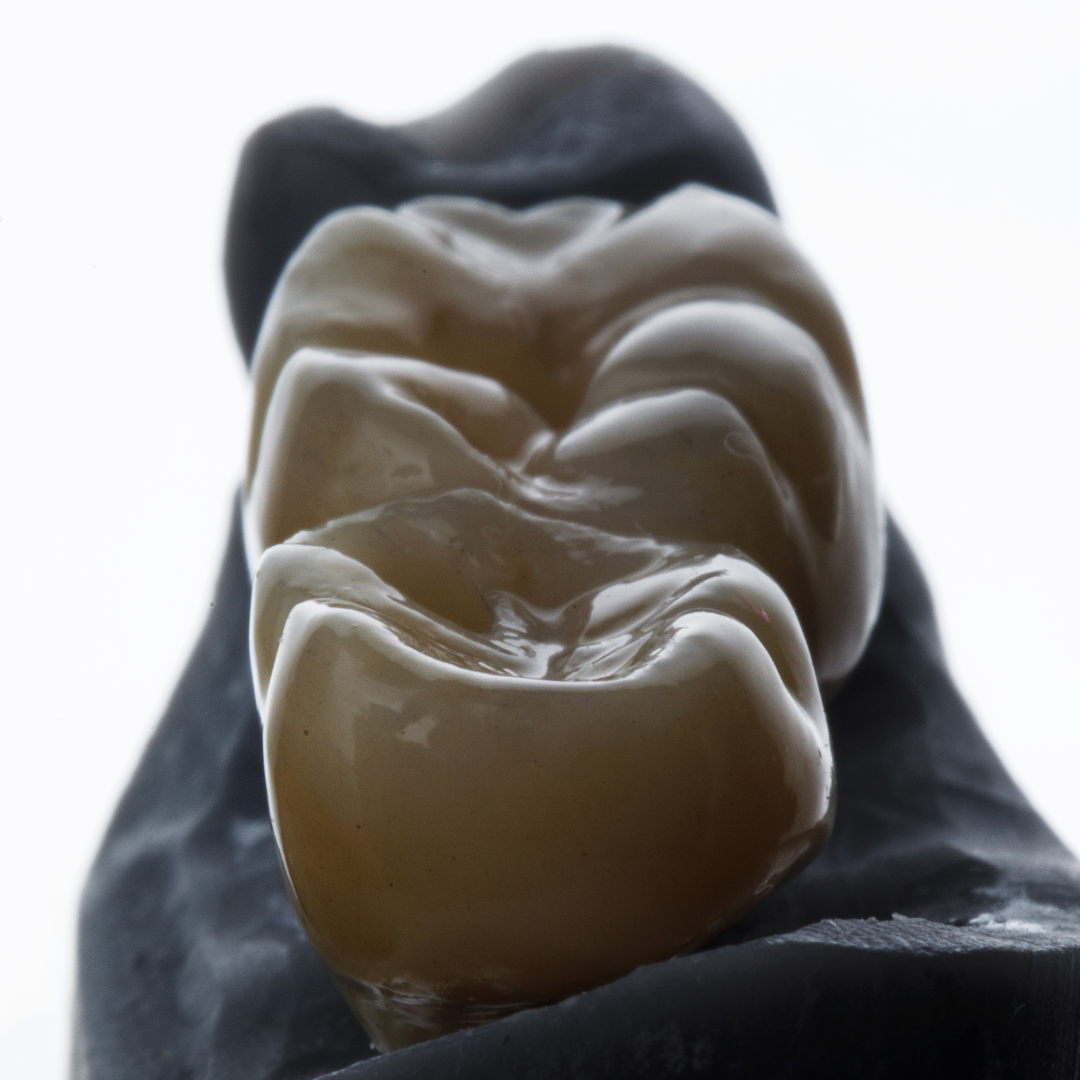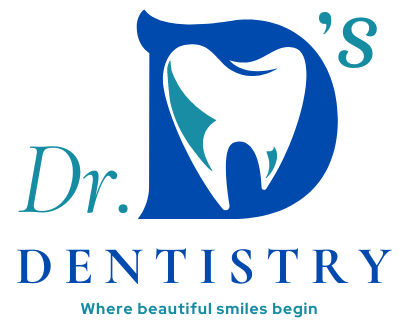Healthy gums are the foundation of a beautiful smile and overall oral health. Gum disease, also known as periodontal disease, is a common condition that can lead to serious complications if left untreated. Understanding the signs and prevention strategies is key to keeping your gums healthy for life.
What Is Gum Disease?
Gum disease occurs when plaque, a sticky film of bacteria, builds up on your teeth and irritates your gums. It starts as gingivitis, a mild form, and can progress to periodontitis, a more severe condition that affects the bone and tissues supporting your teeth.
Signs of Gum Disease
Early Stage: Gingivitis
- Red, swollen, or tender gums.
- Bleeding gums during brushing or flossing.
- Persistent bad breath (halitosis).
- Gums pulling away slightly from the teeth.
Advanced Stage: Periodontitis
- Receding gums, making teeth look longer.
- Deep pockets forming between teeth and gums.
- Loose or shifting teeth.
- Tooth sensitivity or pain when chewing.
- Changes in bite or how your teeth fit together.
If you notice any of these signs, consult your dentist immediately to prevent further damage.
What Causes Gum Disease?
Several factors contribute to gum disease, including:
- Poor Oral Hygiene: Inadequate brushing and flossing allow plaque to harden into tartar.
- Smoking or Tobacco Use: Reduces blood flow to the gums, impairing healing.
- Hormonal Changes: Pregnancy, menopause, and other hormonal fluctuations can make gums more sensitive.
- Genetics: A family history of gum disease increases your risk.
- Chronic Illnesses: Conditions like diabetes can weaken the immune system, making gums more vulnerable.
- Medications: Some drugs reduce saliva production, leading to a dry mouth that promotes bacteria growth.
How to Prevent Gum Disease
1. Maintain a Strong Oral Hygiene Routine
- Brush your teeth twice daily for at least two minutes using fluoride toothpaste.
- Floss daily to remove plaque and food particles from between teeth.
- Consider using an antibacterial mouthwash to reduce bacteria in your mouth.
2. Schedule Regular Dental Checkups
- Visit your dentist every six months for professional cleanings and exams.
- Professional cleanings remove tartar that brushing and flossing can’t eliminate.
3. Eat a Balanced Diet
- Choose foods rich in vitamins C and D, calcium, and antioxidants to support gum health.
- Limit sugary and starchy foods that feed bacteria.
4. Avoid Tobacco Products
- Quitting smoking or chewing tobacco significantly reduces your risk of gum disease and other oral health issues.
5. Manage Stress
- High stress levels can weaken your immune system, making it harder for your body to fight infections, including gum disease.
6. Stay Hydrated
- Drink plenty of water to wash away food particles and bacteria while promoting saliva production.
Treatment Options for Gum Disease
For Gingivitis
- Improved oral hygiene practices and professional cleanings can reverse gingivitis.
For Periodontitis
- Scaling and Root Planing: A deep-cleaning procedure to remove tartar and bacteria below the gumline.
- Antibiotics: Used to treat infections in the gums.
- Surgery: In severe cases, procedures like gum grafts or pocket reduction surgery may be necessary to restore gum health.
Why Gum Health Matters
Poor gum health is linked to more than just tooth loss. Studies have shown connections between gum disease and systemic conditions like heart disease, diabetes, and respiratory infections. Taking care of your gums is essential for your overall health.
Conclusion
Preventing gum disease starts with simple daily habits and regular dental visits. By staying proactive, you can protect your gums, teeth, and overall well-being.
Concerned about your gum health? Schedule a consultation with us today to keep your smile healthy!
Tips for Better Gum Health
Here are some additional tips that can help keep your gums in optimal condition:
1. Be Gentle When Brushing
- Avoid aggressive brushing: Using a hard-bristled toothbrush or scrubbing too hard can damage your gums, leading to receding gums and sensitivity. Opt for a soft-bristled toothbrush and gentle circular motions to protect your gums while cleaning your teeth.
2. Use a Powered Toothbrush
- Powered toothbrushes can be more effective at removing plaque and reducing gum disease symptoms. They are designed to provide consistent brushing pressure, making them a good option for people with sensitive gums or those prone to gum disease.
3. Rinse with Salt Water
- If your gums are sore or inflamed, rinsing with a saltwater solution can help reduce inflammation and promote healing. Mix a teaspoon of salt in warm water and gently swish it around your mouth for about 30 seconds to soothe irritated gums.
4. Consider Gum Health Supplements
- Certain supplements, such as vitamin C, omega-3 fatty acids, and probiotics, can support gum health and reduce inflammation. Always consult with your dentist before adding any supplements to your routine to ensure they are safe and effective for you.
When to Seek Immediate Help
While early gum disease can often be treated with improved hygiene and professional care, there are certain signs that require immediate attention from a dentist:
- Severe Bleeding: If your gums bleed heavily or continuously when brushing or flossing, it may indicate a more serious gum problem that needs professional intervention.
- Loose Teeth: If your teeth feel loose or you notice them shifting in your mouth, this could be a sign of advanced periodontitis and requires immediate care.
- Abscess Formation: If you experience a swollen, painful area on your gums or pus coming from your gum line, it could indicate a gum infection or abscess that needs prompt treatment.
- Persistent Pain or Discomfort: Ongoing pain or discomfort in your gums, especially if it’s not relieved by regular oral hygiene, could indicate a need for professional care.
The Connection Between Gum Disease and Overall Health
Gum disease not only impacts your oral health but can also influence your overall well-being. Here are some of the connections between gum disease and systemic health:
- Heart Disease: Studies suggest that gum disease is linked to an increased risk of heart disease. Inflammation from infected gums can contribute to clogged arteries and other cardiovascular issues.
- Diabetes: People with diabetes are at greater risk of developing gum disease due to the effect of high blood sugar on gum tissues. Gum disease can also make it more difficult to control blood sugar levels.
- Respiratory Issues: Gum disease has been associated with an increased risk of respiratory infections. Bacteria from the mouth can be inhaled into the lungs, causing complications such as pneumonia and bronchitis.
- Pregnancy Complications: Gum disease during pregnancy has been linked to preterm birth and low birth weight. Pregnant women should pay special attention to their gum health.
Maintaining Long-Term Gum Health
To ensure long-lasting gum health, make it a priority to:
- Commit to a lifelong oral care routine: Consistency in brushing, flossing, and visiting the dentist is key to preventing gum disease from returning.
- Stay informed: Regularly educate yourself on the latest oral health tips and best practices. The more proactive you are, the healthier your gums will be.
- Involve your family: Gum disease can affect anyone, so encouraging healthy oral habits in your family members—especially children—can help ensure they grow up with strong gums and teeth.
Conclusion
Gum disease may be common, but it’s entirely preventable with the right care and habits. By recognizing the signs early, maintaining good oral hygiene, and seeking professional care when needed, you can keep your gums healthy and your smile bright for years to come.
Concerned about your gum health? Don’t wait! Schedule a dental check-up today and take the first step toward healthier gums and a better smile.

The critical Categories we come under
Dr.D’s Dentistry, Best Dental Clinic in Chennai, nearby to Royapettah, Mylapore, Alwarpet, Gopalapuram, Kid Specialist in Chennai and Best Affordable Dental Clinic in Chennai. Best Dental Clinic near me, Best Dentist near me, Best Dental Clinic within 1 KM, Root Canal Specialist in Chennai, Smile specialist in Chennai, Smile Designer in Chennai, Invisalign specialist in Chennai, Implant Specialist in Chennai


